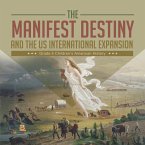In "Expansion and Conflict," William Edward Dodd intricately examines the socio-political ramifications of the United States' territorial expansion in the late 19th and early 20th centuries. Through a compelling blend of historical analysis and vivid narrative, Dodd explores how economic interests, nationalistic fervor, and imperialist ambitions shaped American foreign policy and domestic relations. His literary style is marked by a clear, scholarly prose that invites readers to grapple with complex ideas while maintaining a narrative fluidity, placing the book within a rich context of American historical writing that seeks to understand the roots of modern conflicts originating from expansionist practices. William Edward Dodd, a distinguished historian and educator, was deeply influenced by his own experiences growing up during a time when America's global presence was expanding. His academic background, particularly in American history, propelled his quest to understand the historical narratives that surround U.S. expansionism. Through careful research and personal reflection, Dodd seeks to unveil the often tumultuous consequences of this expansion, providing readers not just with historical facts, but with insightful interpretations that reflect societal values of the time. Readers interested in American history, imperialism, and the underlying motivations of national policy will find "Expansion and Conflict" to be an essential addition to their scholarly collection. Dodd's engaging synthesis of historical facts and critical analysis serves not only to inform but also to provoke thought about the legacies of expansionism and its continued relevance today.
Dieser Download kann aus rechtlichen Gründen nur mit Rechnungsadresse in A, B, BG, CY, CZ, D, DK, EW, FIN, F, GR, H, IRL, I, LT, L, LR, M, NL, PL, P, R, S, SLO, SK ausgeliefert werden.









